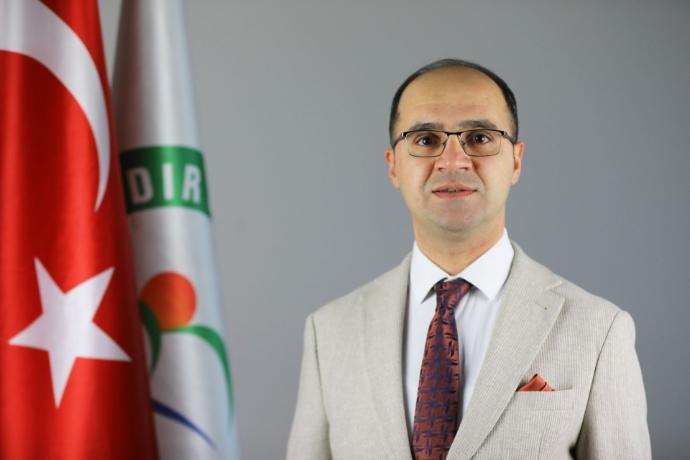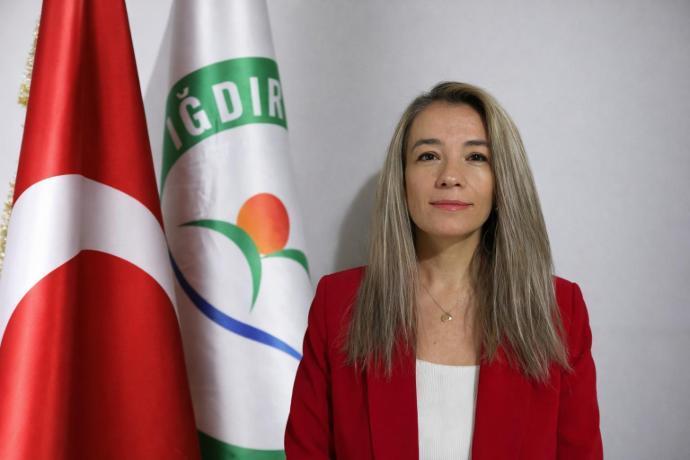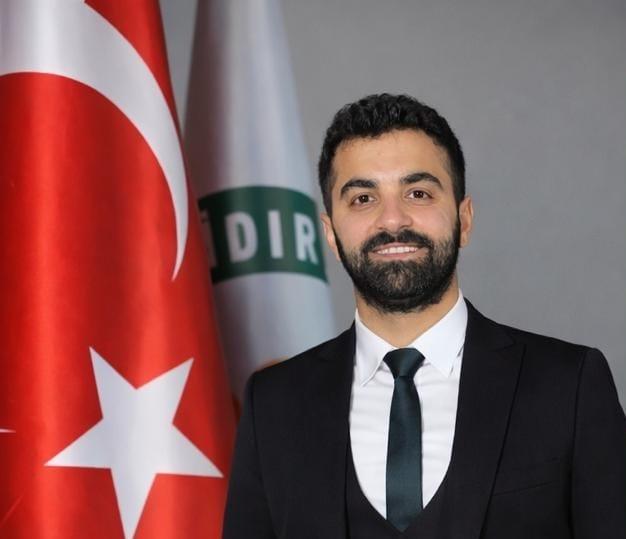General Information
- History: The Department of Physiotherapy and Rehabilitation has started accepting students for the fall semester of 2021-2022.
- Department Program Outcomes:
- Learns the basic concepts and terminology related to the field of physiotherapy and rehabilitation and can use them in studies, research and applications related to the field.
- Using theoretical and applied concepts and principles related to the field of physiotherapy and rehabilitation, it makes the necessary assessment, definition and planning for physiotherapy and rehabilitation practices.
- Using the advanced knowledge and skills acquired, implements the physiotherapy and rehabilitation program systematically and safely within the framework of ethical principles; terminates or changes it when necessary.
- He/she carries out professional and academic studies independently using his/her knowledge and works as a team member and assumes responsibility in effective communication and cooperation with other professional groups working in this field.
- Keeps records and prepares reports for quality service and research in the field of physiotherapy and rehabilitation; participates in all stages of research and project implementation.
- It contributes to the process of the society in which it is located becoming an information society by evaluating the advances in the field of physiotherapy and rehabilitation.
- Learns the basic concepts and terminology related to the field of physiotherapy and rehabilitation and can use them in studies, research and applications related to the field.
- Using theoretical and applied concepts and principles related to the field of physiotherapy and rehabilitation, it makes the necessary assessment, definition and planning for physiotherapy and rehabilitation practices.
- Using the advanced knowledge and skills acquired, implements the physiotherapy and rehabilitation program systematically and safely within the framework of ethical principles; terminates or changes it when necessary.
- Takes initiatives for community health protection behaviour; contributes to the production of health policies suitable for the changing and diversifying needs of the society in the field of physiotherapy and rehabilitation.
- Organises physiotherapy and rehabilitation services effectively and adequately, manages the business processes necessary for the continuity and development of quality and organisation function; produces solutions to problems in line with knowledge and evidence.
- He/she carries out professional and academic studies independently using his/her knowledge and works as a team member and assumes responsibility in effective communication and cooperation with other professional groups working in this field.
- Keeps records and prepares reports for quality service and research in the field of physiotherapy and rehabilitation; participates in all stages of research and project implementation.
- Directs social relations in the field of physiotherapy and rehabilitation, can examine different norms from a critical point of view.
- It contributes to the process of the society in which it is located becoming an information society by evaluating the advances in the field of physiotherapy and rehabilitation.
- Learns the basic concepts and terminology related to the field of physiotherapy and rehabilitation and can use them in studies, research and applications related to the field.
- Using theoretical and applied concepts and principles related to the field of physiotherapy and rehabilitation, it makes the necessary assessment, definition and planning for physiotherapy and rehabilitation practices.
- Using the advanced knowledge and skills acquired, implements the physiotherapy and rehabilitation program systematically and safely within the framework of ethical principles; terminates or changes it when necessary.
- Takes initiatives for community health protection behaviour; contributes to the production of health policies suitable for the changing and diversifying needs of the society in the field of physiotherapy and rehabilitation.
- Organises physiotherapy and rehabilitation services effectively and adequately, manages the business processes necessary for the continuity and development of quality and organisation function; produces solutions to problems in line with knowledge and evidence.
- He/she carries out professional and academic studies independently using his/her knowledge and works as a team member and assumes responsibility in effective communication and cooperation with other professional groups working in this field.
- Keeps records and prepares reports for quality service and research in the field of physiotherapy and rehabilitation; participates in all stages of research and project implementation.
- Learns the basic concepts and terminology related to the field of physiotherapy and rehabilitation and can use them in studies, research and applications related to the field.
- Using theoretical and applied concepts and principles related to the field of physiotherapy and rehabilitation, it makes the necessary assessment, definition and planning for physiotherapy and rehabilitation practices.
- Using the advanced knowledge and skills acquired, implements the physiotherapy and rehabilitation program systematically and safely within the framework of ethical principles; terminates or changes it when necessary.
- Takes initiatives for community health protection behaviour; contributes to the production of health policies suitable for the changing and diversifying needs of the society in the field of physiotherapy and rehabilitation.
- He/she carries out professional and academic studies independently using his/her knowledge and works as a team member and assumes responsibility in effective communication and cooperation with other professional groups working in this field.
- Keeps records and prepares reports for quality service and research in the field of physiotherapy and rehabilitation; participates in all stages of research and project implementation.
- Adopts the principle of personal development, information literacy and lifelong learning; contributes to quality improvement, training and promotion programmes related to the field, and demonstrates professional behaviour at the international level.
- Learns the basic concepts and terminology related to the field of physiotherapy and rehabilitation and can use them in studies, research and applications related to the field.
- Using theoretical and applied concepts and principles related to the field of physiotherapy and rehabilitation, it makes the necessary assessment, definition and planning for physiotherapy and rehabilitation practices.
- Using the advanced knowledge and skills acquired, implements the physiotherapy and rehabilitation program systematically and safely within the framework of ethical principles; terminates or changes it when necessary.
- Takes initiatives for community health protection behaviour; contributes to the production of health policies suitable for the changing and diversifying needs of the society in the field of physiotherapy and rehabilitation.
- Organises physiotherapy and rehabilitation services effectively and adequately, manages the business processes necessary for the continuity and development of quality and organisation function; produces solutions to problems in line with knowledge and evidence.
- He/she carries out professional and academic studies independently using his/her knowledge and works as a team member and assumes responsibility in effective communication and cooperation with other professional groups working in this field.
- Keeps records and prepares reports for quality service and research in the field of physiotherapy and rehabilitation; participates in all stages of research and project implementation.
- Adopts the principle of personal development, information literacy and lifelong learning; contributes to quality improvement, training and promotion programmes related to the field, and demonstrates professional behaviour at the international level.
- Directs social relations in the field of physiotherapy and rehabilitation, can examine different norms from a critical point of view.
- It contributes to the process of the society in which it is located becoming an information society by evaluating the advances in the field of physiotherapy and rehabilitation.
- Learns the basic concepts and terminology related to the field of physiotherapy and rehabilitation and can use them in studies, research and applications related to the field.
- Using theoretical and applied concepts and principles related to the field of physiotherapy and rehabilitation, it makes the necessary assessment, definition and planning for physiotherapy and rehabilitation practices.
- Using the advanced knowledge and skills acquired, implements the physiotherapy and rehabilitation program systematically and safely within the framework of ethical principles; terminates or changes it when necessary.
- Takes initiatives for community health protection behaviour; contributes to the production of health policies suitable for the changing and diversifying needs of the society in the field of physiotherapy and rehabilitation.
- Organises physiotherapy and rehabilitation services effectively and adequately, manages the business processes necessary for the continuity and development of quality and organisation function; produces solutions to problems in line with knowledge and evidence.
- He/she carries out professional and academic studies independently using his/her knowledge and works as a team member and assumes responsibility in effective communication and cooperation with other professional groups working in this field.
- Keeps records and prepares reports for quality service and research in the field of physiotherapy and rehabilitation; participates in all stages of research and project implementation.
- Adopts the principle of personal development, information literacy and lifelong learning; contributes to quality improvement, training and promotion programmes related to the field, and demonstrates professional behaviour at the international level.
INFORMATION
Theoretical, Factual
SKILLS
Cognitive, Applied
COMPETENCES
Ability to work independently and take responsibility
Learning Competence
Communication and Social Competence
Field Specific Competence
- Language / Type of Education: The language of education at Iğdır University Department of Physiotherapy and Rehabilitation is Turkish. Courses are given face-to-face. There are currently no distance education or evening education options available.
- Infrastructure Facilities: Technical and physical facilities offered by the department to students. Details about the infrastructure that supports education and research activities, such as laboratories, workshops, machinery and equipment.
Academic Staff

Dr. Öğr. Üyesi Ramazan Cihad YILMAZ
Head of Department
rcihad.yilmaz@igdir.edu.tr
476 213 00 10 Ext: 00 00

Asst. Prof. Dilan DEMİRTAŞ KARAOBA
Department of Physiotherapy and Rehabilitation
476 213 00 10 Ext: 00 00

Asst. Prof. Sema BÜĞÜŞAN ORUÇ
Department of Physiotherapy and Rehabilitation
476 213 00 10 Ext: 00 00

Arş. Gör. Abdurrahim Eyüp CANBALOĞLU
Fizyoterapi ve Rehabilitasyon Anabilim Dalı
aeyup.canbaloglu@igdir.edu.tr
476 213 00 10 Dahili : 00 00
Course Catalog
Double Major / Minor Programs
Double Major Program: Allows students to earn a bachelor's degree in a field they are interested in, in addition to their primary field. In this program, students can complete courses in two different fields and earn a diploma in both fields.
Minor Program: Allows students to take a certain number of courses in a field they are interested in, outside of their major. Students who complete the minor program are given an official certificate in that field; however, this does not mean a second undergraduate degree.
- o access Double Major and Minor programs, click here.
Exchange Programs
It offers students the opportunity to study at another university, either domestically or abroad, for a certain period of time. Thanks to these programs, students have the opportunity to learn about different cultures, develop their foreign language skills and gain international academic experience. The most common exchange programs include programs such as Erasmus+, Mevlana and Farabi.
- For the Erasmus Program click here.
- For the Mevlana Program click here.
- For the Farabi Program click here.
Career
Purpose / Objectives of the Department / Program: Our aim is to train undergraduate level physiotherapists who have the ability to plan and implement patient-specific physiotherapy and rehabilitation programs, who can successfully work as a team, who can communicate healthily, who are committed to ethical principles, who are aware of their duties and responsibilities towards their profession, who have adopted the principle of lifelong learning, who are open to innovations, who follow scientific studies, and who will represent our profession, our country and our university on national and international platforms.
Current Status and Future of the Department / Program: The Department of Physiotherapy and Rehabilitation continues its education with its experienced academic staff. The number of current students increases every year, reflecting the interest in the department, while the education process supported by clinical internships and projects provides students with experience in the field. The projects implemented in the department and research supporting public health contribute to both students and local health services. Future plans include further expanding the teaching staff, opening master's and doctoral programs, providing more resources for research projects and supporting students to gain experience in international platforms.
Professions Under the Field: Physiotherapists can work in national and international inpatient treatment centers (university, state, etc.), orthopedics and traumatology, neurology / pediatric neurology, psychiatry, physical medicine and rehabilitation, brain and neurosurgery, general surgery, cardiology, cardiovascular surgery, chest diseases / thoracic surgery, pediatrics, urology, oncology, gynecology and obstetrics, ear-nose-throat, all intensive care units, plastic surgery units, burn units, rheumatology departments, special education and rehabilitation centers, prosthesis-orthosis production and rehabilitation centers, primary health care institutions, industrial areas, schools, sports clubs, nursing homes, vocational rehabilitation centers and spa centers, branch centers, home care centers, private or public services. They can continue their education after graduation, provided that they pass the exam in the relevant education-training programs at universities, and receive the title of scientific specialist, doctorate, associate professor, professor.
Job Opportunities: Graduates from the Physiotherapy and Rehabilitation department have the opportunity to work in many different sectors.
· Public or Private Institutions and Organizations,
· University Hospitals,
· Private Clinics,
· Sports Facilities or Clubs,
· Nursing homes,
· Municipalities,
· Elderly Care and Rehabilitation
· Industries,
· Public Health Centers,
· Home Care Centers,
· Schools,
· Disabled Units,
There are many areas where Physiotherapy and Rehabilitation graduates can be employed. At this point, individual preferences and abilities come to the fore. In this direction, graduates can choose the most suitable field of work for themselves. In addition, students who want to pursue an academic career can continue their education with master's and doctoral programs.
Program Introduction Presentation
It is a presentation prepared to introduce the basic features, educational opportunities and objectives of a department or program.

Address : Emek Mah. Evren Pasa St. No.57 Igdir University Karaagac Campus Center / Igdir- Call Center: 444 9 447
Telephone: +90 476 223 00 10 - 4310 - Fax: +90 476 223 00 17
- E-mail: sbf@igdir.edu.tr
Program Introduction Presentation
Bir bölüm veya programın temel özelliklerini, eğitim olanaklarını ve hedeflerini tanıtmak amacıyla hazırlanan sunumdur.
İletişim
- Adres : Şehit Bülent Yurtseven Kampüsü, Tuzluca Meslek Yüksekokulu Müdürlüğü
- Çağrı Merkezi : 444 9 447
Telefon: +90 476 223 00 10 - 3405 - Faks: +90 476 223 00 17
- E-posta: tuzluca@igdir.edu.tr